Search
Search Results
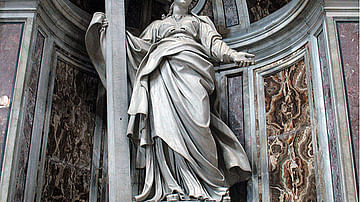
Definition
Helena of Constantinople
Saint Helena of Constantinople (248/250-328 CE) was the mother of Roman emperor Constantine I (r. 306-337 CE). She famously made a pilgrimage to Jerusalem where tradition claims found Christ's true cross and built the Basilica of the Holy...
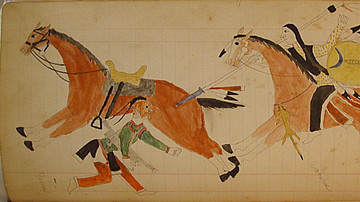
Definition
Cheyenne
The Cheyenne are a North American Native nation, originally from the Great Lakes region, who migrated to modern-day Minnesota and then to areas in North Dakota and further southwest. They are associated with the Plains Indians culture and...
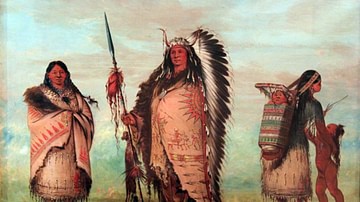
Definition
Sioux
The Sioux are a native North American nation who inhabited the Great Plains region of, roughly, modern Colorado, Montana, Nebraska, North Dakota, South Dakota, and Wyoming. They are one of the many nations referred to as Plains Indians who...

Image
Skull of Saint Helena
Alleged skull of Saint Helena of Constantinople (248/250-328 CE), mother of Roman emperor Constantine I.
Cathedral of Trier, Germany.

Image
Helena of Constantinople
Statue of Saint Helena of Constantinople by Andrea Bolgi (1605-1656).
St. Peter's Basilica, Vatican.

Definition
Edmond Halley
Edmond Halley (1656-1742) was an English astronomer, mathematician, and cartographer. Halley's Comet is named after him since he accurately predicted its return in 1758. One of the early globetrotting scientists, Halley led several maritime...
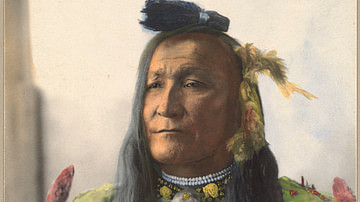
Article
The Wise Man of Chief Mountain
The Wise Man of Chief Mountain is an origin story of the Blackfeet nation explaining how they came to wear brightly colored clothing. Although Native American nations generally wore clothing dyed different colors, the Blackfeet were famous...

Definition
Hundred Days
The Hundred Days refers to the second reign of French Emperor Napoleon I, who unexpectedly returned from exile to reclaim the French throne. It encompasses Napoleon's triumphant return to Paris on 20 March 1815, his climactic defeat at the...

Definition
Pontius Pilate
Pontius Pilate was the fifth magistrate to serve in the Roman province of Judea, created in 6 CE by Roman emperor Augustus (r. 27 BCE to 14 CE). His term of office was during the subsequent reign of Tiberius from 26-36 CE. He became famous...
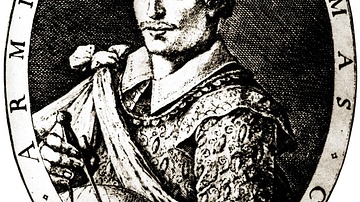
Definition
Thomas Cavendish
Thomas Cavendish (1560-1592 CE) was an Elizabethan mariner and privateer who famously circumnavigated the globe in 1586-88 CE, only the third voyage to do so and the first to set sail with that specific intention. Returning rich from Spanish...